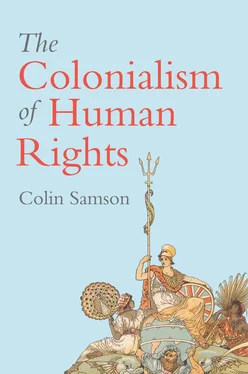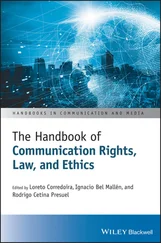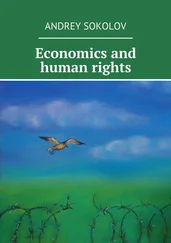In the early twentieth century, men were conscripted and moved all over Europe to train in various national armies, and they were used by nations aligned against each other to protect, and sometimes enlarge, their highly stratified internal national orders. Although commemorated on the medal I inherited from my grandfather as ‘The Great War for Civilisation’, the result was 50 million dead from 1914 to 1919 in World War I. British writers who fought in that war, including Siegfried Sassoon, Robert Graves and Wilfrid Owen, often depicted it as being fought for no greater principles than the national vanities of governments and politicians. The unwilling recruits whom Sassoon wrote of in Memoirs of an Infantry Officer were inducted into a mechanical and inhuman undertaking. ‘What in earlier days had been drafts of volunteers’, he writes, ‘were now droves of victims’. 80Later in his recollections, he describes the purpose of his and other soldiers’ sacrifices as being the upholding of a society of extreme class privilege. As he put it following conversations with Lady Brassey of Chapelwood Manor, Sussex (fictionalized as Lady Asterisk at Nutwood Manor), where he was convalescing: ‘outwardly emotionless, she symbolized the patrician privileges for whose preservation I had chucked bombs at Germans and carelessly offered myself as a target for a sniper’. 81These ‘patrician privileges’ allowed members of higher social classes simply to become officers, with access to recuperation in manor houses in England, while working-class recruits shortened their odds of survival in makeshift hospital tents at the front. Additionally, the 3 million troops from the Commonwealth, including a million from British India, were also enlisted in what was depicted as an imperial cause. They fought on the Western front and they were not given the same food, medicines or remuneration as white soldiers. 82
The reinforcing of internal British class divisions through World War I was mirrored by Germany where, as Schmitt commented, ‘to demand seriously of human beings that they kill others and be prepared to die themselves so that trade and industry may flourish for the survivors or that the purchasing power of grandchildren may grow is sinister and crazy’. 83In the same milieu of violence and class rivalry, ethnic and national divisions were changed as the boundaries of European states were continuously redrawn to create several distinct nation-states that were previously under the dominion of various Empires. The interwar period was also a period of mass unemployment, poverty, widespread malnutrition, starvation and economic depression throughout mainland Europe. As Hannah Arendt observed in ‘The Decline of the Nation-State and the End of the Rights of Man’, 84numerous peoples simply either became unwanted ‘minorities’ in these new states or were deprived of all rights because they did not have a nationality that coincided with the state they happened to live in. This provoked another mass exodus of such peoples to other states in which they sometimes had a nationality, but, because they were not born in the territory, they did not have citizenship rights. Only nationals could be citizens, and only citizens could have rights. Within each state, there could be people of varying juridical statuses, and scores without citizenship guarantees. As with many of those caught up in the ‘migration crisis’ in Europe today, there were people who had no human rights in the territories they were born in and, likewise, no rights in the places to which they fled.
For Arendt, the realignment of states following World War I catalysed the problem of human beings who may be refugees, minorities or stateless, but who to one degree or another are without the right to have rights. Those who fell into these categories were victims of the establishment of nation-states, the preconditions for which are ‘homogeneity of population and rootedness in the soil’. 85The problem was that, within the reconfigured boundaries of mid-twentieth-century Europe, the national homogeneity that was the underlying premise of citizenship and hence access to rights, did not prevail, especially in Eastern Europe. In these circumstances, the link between birth and nation could be severed, and rightlessness became public policy applied to specific ethno-national groups. Both Germany and the Soviet Union along with numerous other European countries, de-nationalized and disowned population groups. Most notoriously, German Jews lost all rights of nationality overnight under the Nuremberg Laws of 1935. This became the groundwork for the murder of 6 million Jews by the German state.
One response to this horror was the migration of European Jews to Palestine, followed by the creation of the state of Israel in 1948 out of the British Mandate colonial administration. But, as Arendt notes, this ‘produced a new category of refugee, Arabs, thereby increasing the number of rightless by another 700,000 to 800,000 people’. 86As a Jewish state, Israel established differential citizenship rights according to ethnicity and religion, as have other countries up to the present. In 2019, India’s lower chamber passed a bill that would grant residency and citizenship to non-Muslim migrants only. 87The stripping of citizenship was given great force by the Bush administration policy during the Iraq war by asserting that those they captured were ‘unlawful combatants’ who had no rights under the Geneva Convention. In such a scenario, all means of violent and inhumane practices could be, and were, exercised against them because they were rendered stateless, and, hence, rightless. No international enunciation of the human rights of refugees has been able to affect any of these state actions that, in effect, seal the fate of hundreds of thousands of people as being without the right to have rights.
Under the rubric of the Global War on Terror, several Western liberal states, including Britain, the USA, Australia, the Netherlands and Austria, have taken measures to compel citizens to denationalize. Although ‘the force of Arendt’s “right to have rights” aphorism may seem attenuated, at least with respect to liberal democratic states of the twenty first century’, as Macklin points out, this depends on the ‘right to enter and remain in the state’. 88In 2017, 100 British ISIS fighters were rendered stateless by the UK government as the caliphate succumbed to military defeat. 89Added to this number was the tragic case of the pregnant teenage ISIS bride Shamima Begum, who in 2019 attracted media attention because she was found by a BBC journalist in a refugee camp in Syria. Home Secretary Sajid Javid argued that Ms Begum would not be stateless because she was entitled to Bangladeshi nationality through her parents. Denied both British and Bangladeshi rights, she had to remain in Syria, where her infant child died, largely due to physical conditions in the refugee camp shortly after Javid’s pronouncement. Actions such as these amount to an admission of varied British citizenship categories, because citizens with foreign parents can more easily be stripped of their nationality, 90resulting in the rightlessness of the camp.
Other countries have removed citizenship from their nationals under global counter-terrorism and security legislation. While these instances had internal causes, it is not insignificant that such legislation was globalized by the US and British-led war on terrorism. Bahrain, for example, denationalized almost 1,000 people, including some minors, and part of this was done through mass trials of defendants in absentia . Michelle Bachelet, the Director of the UN HRC, criticized Bahrain for violating the right to a nationality under Article 15 of the UDHR. 91India did the same on a much larger scale to residents of Assam, who had to prove that they had lived in India before the Pakistan civil war of 1971 in which many were forced to flee what is now Bangladesh. In 2019, the final National Registrar of Citizens list determined that 1.9 million people were illegal immigrants subject to detention and deportation. As of August 2019, 1,000 people failing appeals at the Foreigners’ Tribunal have been placed in detention centres, and children separated from parents. 92
Читать дальше












